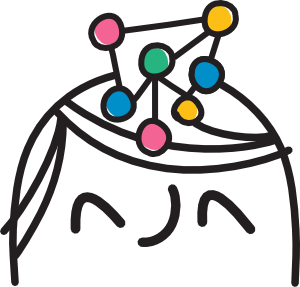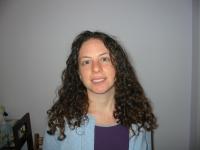
|
Hannah Bayer
Nature Neuroscience, Nature Publishing Group
h.ba...@us.nature.com
Hannah Bayer is a Senior Editor at Nature Neuroscience, where she has worked since 2006. She received her PhD from New York University, where she studied the role of the basal ganglia in reinforcement learning with Paul Glimcher. She then moved to a postdoctoral fellowship at Columbia University where she investigated neural representations of risk perception and risky choice with Elke Weber. Her research interests include decision making, sensory systems and motor control. |
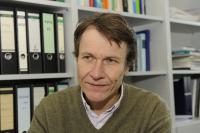
|
Jan Born
Department of Medical Psychology and Behavioral Neuroscience, University of
Tübingen, Germany
b...@kfg.uni-luebeck.de
Jan Born is director of the Department of Medical Psychology and Behavioral Neurobiology at the University of Tübingen, Germany. He obtained Ph.D.s in Psychology and Physiology. After stays as research fellow in the Department of Biological Psychology at the State University of New York at Stony Brook and as a post doc at the Department of Physiology at the University of Ulm, Germany, he was appointed full professor of Physiological Psychology at the University of Bamberg, Germany, in 1989. In 1999, he joined the Department of Neuroendocrinology at the University of Lübeck, and changed in 2010 to his current position. Dr. Born's primary research interests are in the dynamics of memory formation in biological systems. He is particularly interested in the memory functions that sleep serves for the central nervous system, metabolic system and the immune system. He is speaker of the collaborative research center "Plasticity and Sleep", founded in 2005 by the German Science Foundation at the Universities of Lübeck and Kiel, Germany. |

|
Elizabeth Brannon
Duke University
bran...@duke.edu
Dr. Elizabeth M. Brannon received her PhD in Psychology from Columbia University. She has been at Duke in the Department of Psychology & Neuroscience and the Center for Cognitive Neuroscience since completing her PhD and was promoted to Associate Professor in 2008. She is currently the Director of Graduate Studies for the Cognitive Neuroscience Admitting Program and the head of the developmental area within the P&N department. She maintains a secondary appointment in the department of Evolutionary Anthropology. Dr. Brannon has received numerous academic awards and honors including the Young Investigator Award from The Society for Experimental Psychology, a CAREER award from the National Science Foundation, a Merck Scholar Award, and a James McDonnell Scholar Award. She is currently a member of an NIH study section panel and serves on the editorial board of Psychological Science, Cognition, Current Directions in Psychological Science, Journal of Experimental Psychology: Animal Behavior Processes, Frontiers in Developmental Psychology, and Frontiers in Comparative Psychology. Dr. Brannon’s research is funded by The National Institutes of Health and The National Science Foundation. Dr. Brannon teaches courses on cognitive development and comparative psychology and maintains two laboratories focused on quantitative cognition in nonhuman primates and human infants. Her research program examines the evolution and development of quantitative cognition. She studies how number, time, and spatial extent are represented by adult humans, infants, young children and nonhuman animals. With her collaborators at Duke she applies behavioral techniques, event-related potentials, functional magnetic resonance imaging, and single-unit physiology to explore the cognitive and neural underpinnings of numerical cognition in nonhuman primates and throughout the human lifespan. |

|
John T. Bruer
James S. McDonnell Foundation
bru...@jsmf.org
John T. Bruer is an Adjunct Professor of Philosophy at Washington University and President of the James S McDonnell Foundation in St. Louis, Missouri. Dr. Bruer is a member of the National Science Board and also serves on numerous advisory panels nationally and internationally (National Educational Research Policy and Priorities Board, USA). He received a Ph.D. in Philosophy from Rockefeller University. His research interests include cognitive neuroscience, cognitive psychology, education, and history and philosophy of science. His work in neuroscience has greatly contributed to improving the education system of developing countries. Since joining the McDonnell Foundation in 1986, the foundation has initiated new programs in cognitive neuroscience, applications of cognitive science to education and rehabilitation, analysis of complex systems, and cancer biology. |
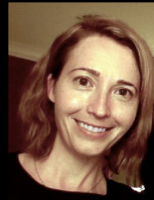
|
Silvia Bunge
UC Berkeley
sbu...@berkeley.edu
Dr. Silvia Bunge is an Associate Professor with a joint appointment in Psychology and the Helen Wills Neuroscience Institute at the University of California at Berkeley, and an affiliate of the Institute of Human Development. A cognitive neuroscientist by training, she directs the Cognitive Control and Development Laboratory. The lab conducts research on the neural mechanisms that support development, plasticity, and individual differences in higher cognitive functions. |
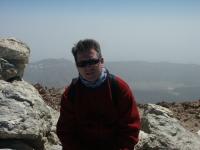
|
Manuel Carreiras
Basque Center on Cognition, Brain and Language
m.ca...@bcbl.eu
- |
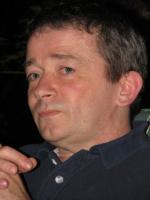
|
Gergely Csibra
Department of Cognitive Science, CEU, Budapest
csib...@ceu.hu
Gergely Csibra is a professor of psychology at the Depaerment of Cognitive Science, Central European University (CEU), and, together with György Gergely, leads the Cognitive Development Center at CEU. He obtained his PhD in Budapest, then worked at the MRC Cognitive Development Unit and then at Birkbeck College in London, before returning to Budapest in 2008. His research focuses on various aspects of cognitive development in human infants. Specifically, he studies infants' visual processing from the level of spatial attention and eye-movement control through the intermediate levels of object and face perception to the level of interpretation of observed actions in terms of goals and understanding of communicative signals. He is also interested in how cognitive processes are accomplished by the human brain and how cognitive development can be explained by the neural development in infancy. |
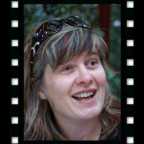
|
Ghislaine Dehaene-Lambertz
INSERM-CEA Cognitive Neuroimaging Unit
ghis...@cea.fr
Ghislaine Dehaene-Lambertz is a full-time Associate Researcher at INSERM U562, Paris, France, where she investigates the development of cognitive functions with brain imaging techniques. Originally qualified as MD, Pediatrician, she received her PhD from the EHESS, Paris, France. The goal of her research is to study the brain functional organization at the beginning of life in order to understand how complex cognitive functions, such as language, music, mathematics, etc emerge in the human brain. Following up on François Jacobs intuition that evolution was a tinkerer, twisting old machineries to give rise to new functions, her approach is to examine the primitive functions that are accessible to the human brain to process the external word at the beginning of life, then to study how initial biases in brain organization could be shaped by the human environment to give rise to the mature state. Her pioneering work studying language acquisition with new techniques as such high-density event-related potentials, functional resonance magnetic imaging or optical topography, has impacted the developmental neuroscience. |

|
Stanislas Dehaene
Collège de France / INSERM-CEA
stan...@cea.fr
Stanislas Dehaene is a Full Professor in the newly created Chair of Experimental Cognitive Psychology at the Collège de France in Paris. He completed a Ph.D. in Cognitive Psychology at the Ecole des Hautes Etudes en Sciences Sociales, Paris. He heads the Cognitive NeuroImaging Unit at NeuroSpin on the Commissariat A lEnergie Atomique campus in Saclay near Paris. Stanislas Dehaenes interests focus on the cerebral bases of specifically human cognitive functions such as language, calculation, and conscious reasoning. His team uses a variety of experimental methods, including mental chronometry in normal subjects, cognitive analyses of brain-lesioned patients, and brain-imaging studies with positron emission tomography, functional magnetic resonance imaging, and high-density recordings of event-related potentials. Formal models of minimal neuronal networks are also devised and simulated in an attempt to throw some links between molecular, physiological, imaging, and behavioral data. |
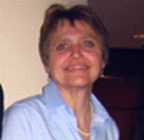
|
Susan Fitzpatrick
James S. McDonnell Foundation
sus...@jsmf.org
Susan Fitzpatrick is Vice President with the James S. McDonnell Foundation and an Adjunct Associate Professor of Neurobiology and Anatomy at Washington University School of Medicine (St. Louis), teaching neuroscience. She received her Ph.D. in Biochemistry and Neurology from Cornell University Medical College. After 5 years pursuing in vivo NMR spectroscopic studies of brain metabolism in the Department of Molecular Biochemistry and Biophysics at Yale University, Dr. Fitzpatrick shifted her career to non-profit administration. Dr. Fitzpatrick lectures and writes on issues concerning the role of private philanthropy in the support of scientific research, and on issues related to the public understanding of science. She will give her talk with Tom Wyman: http://www.micds.org/technology |
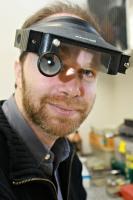
|
Diego A. Golombek
National University of Quilmes (UNQ)
National Research Council (CONICET)
dgol...@unq.edu.ar
My research deals with the world of biological timing. I am a biology graduate and PhD from the University of Buenos Aires, and received postdoctoral training at the University of Toronto, and was research associate at Smith College (Massachusetts) and invited professor at many universities in Latin and North America and Europe. I am currently full professor of physiology at the National University of Quilmes, where I head the Chronobiology Lab, and Principal Investigator of the National Research Council of Argentina. I am also the president of the Argentine Society for Neuroscience and have published over 100 international peer-reviewed papers. I also worked as theatre director, musician and journalist and currently host science TV shows and edit a popular science book series. |

|
Usha Goswami
University of Cambridge
ucg...@cam.ac.uk
Usha Goswami is Professor of Cognitive Developmental Neuroscience at the University of Cambridge and a Fellow of St John’s College, Cambridge. She is also Director of the University’s Centre for Neuroscience in Education, which uses EEG techniques to study the neural basis of dyslexia and dyscalculia. Usha Goswami is currently funded by the Medical Research Council to carry out a longitudinal investigation of the brain basis of dyslexia in children. This is a 10-year study involving over 100 children. Prior to moving to Cambridge, she was Professor of Cognitive Developmental Psychology at the Institute of Child Health, University College London 1997 - 2003, and before that she was a University Lecturer in Experimental Psychology at the University of Cambridge, 1990-1997. She received her Ph.D. from the University of Oxford in 1987, her topic was reading and spelling by analogy. Her current research examines relations between phonology and reading, with special reference to the neural underpinnings of rhyme and rhythm in children’s reading. She has received a number of career awards, including the British Psychology Society Spearman Medal and President’s Award, the Norman Geschwind-Rodin Prize for Dyslexia research, and Fellowships from the National Academy of Education (USA), the Leverhulme Trust (UK) and the Alexander von Humboldt Foundation (Germany). |
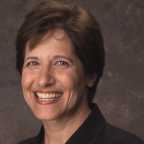
|
Kathryn Hirsh-Pasek
Temple University
khir...@temple.edu
Kathryn Hirsh-Pasek is the Stanley and Debra Lefkowitz Professor in the Department of Psychology at Temple University, where she serves as Director of the Infant Language Laboratory and Co-Founder of CiRCLE (The Center for Re-Imagining Children's Learning and Education). She received her Ph.D. from the University of Pennsylvania. Dr. Hirsh-Paseks research in the areas of early language development, literacy and infant cognition is funded by the National Science Foundation, the Institute of Educational Sciences and the National Institutes of Health and Human Development. She is deeply committed to bridging the gap between research and practice. To that end, she was a researcher on the NICHD Study of Early Child Care and Youth Development, co-developed the language and literacy preschool curricula for the State of California and has consulted with toy companies and media programs like Sesame Workshop. She is the winner of the American Psychological Association (APA) Award for Distinguished Service to psychology and the APA Bronfenbrenner Award for her lifetime contribution to the field. |
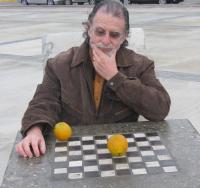
|
David Klahr
Carnegie-Mellon University
kla...@cmu.edu
David Klahr holds the Walter van Dyke Bingham Chair of Cognitive Development and Education Sciences in the Department of Psychology at CMU. He is currently Director of the Program in Interdisciplinary Education Research (PIER), a doctoral training grant funded by the Office of Education, and PostPIER, a post-doctoral training grant aso funded by the Office of Education. Throughout his career, Klahr has focused on the analysis of complex cognitive processes in such diverse areas as voting behavior, college admissions, consumer choice, peer review, problem solving and scientific reasoning. He pioneered the application of computer based models to questions of cognitive development. Dr. Klahr's most recent research has investigated the cognitive processes that support children's understanding of the fundamental principles underlying scientific thinking. This work includes both basic research with pre-school children and more applied classroom studies of how to improve the teaching of experimental science in elementary school. One of his current projects is to create an intelligent tutor to teach the procedural and conceptual bases of experiment design. He is a member of the National Academy of Education, a Fellow of the APA, a Charter Fellow of the APS, a Member of the Society for Research in Child Development, the Cognitive Science Society. He was an Associate Editor of Developmental Psychology and has served on the editorial boards of several cognitive science journals, as well as on the NSF's subcommittee on Memory and Cognitive Processes, and the NIH's Human Development and Aging Study Section. He has served on three Committees of the National Research Council: the Committee on Foundations of Educational Assessment ( Knowing What Students Know, National Academies Press, 2001 ) , the Committee on Research in Education ( Advancing Scientific Research in Education, National Academies Press, 2004 ) and the Committee on Science Learning ( Taking Science to School: Learning and Teaching Science in Grades K-8, National Academies Press, 2007). He also serves as member of the Advisory Board for the Understanding Human Cognition initiative of the James S. McDonnell Foundation. |
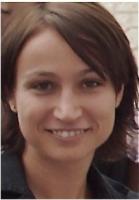
|
Ágnes Melinda Kovács
Department of Cognitive Science, CEU, Budapest
kova...@ceu.hu
Ágnes Melinda Kovács is an Associate Research Fellow at the Her research is focused on how the developing human mind manages to |
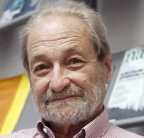
|
Jacques Mehler
Scuola Internazionale Superiore di Studi Avanzati
meh...@sissa.it
Jacques Mehler is Director of the Language, Cognition and Development Laboratory at the Scuola Internazionale Superiore di Studi Avanzati, Trieste. He completed a Ph.D. in Psychology at Harvard University. His research focuses on the human development of Language and Mind and also on the cerebral bases of Language. He and his colleagues perform investigations on very young infants, bilingual children and adults. In some of their studies they use innovative brain imaging equipment, which is especially well suited for the study of very young babies. Dr. Mehler collaborates with researchers from many disciplines - pediatrics, physics, philosophy, engineering and psychology. This combined expertise makes the team better able to explore and understand, to connect models of cognitive development and neurobiology, and to contribute to pediatric science. |

|
Jorge Moll
Rio de Janeiro, Brazil
jorg...@idor.org
Jorge Moll, MD, PhD Graduated in Medicine from the Federal University of Rio de Janeiro (UFRJ, 1994). Completed medical residency in Neurology at the same university (1998) and obtained a PhD in Experimental Physiology from São Paulo University (2003). Research post-doctoral fellow at the National Institutes of Health, USA, 2004-2007. Main topics of scientific research: cognitive and social neuroscience, functional MRI, multimodal imaging, behavioral neurology, psychological and neural bases of moral emotions, prosocial and antisocial behaviors, altruism, neuroeconomics and decision-making. Elected affiliate member of the Brazilian Academy of Sciences in 2009. Elected member of the Governing Board of the International Neuroethics Society in 2011. Founder and president of the D'Or Institute of Research and Education (IDOR), Rio de Janeiro, and of the Cognitive and Behavioral Neuroscience Unit (CBNU). The IDOR is a not-for-profit research and education institute partially funded by the Rede D'Or Hospital Network. The IDOR mission is to promote world-class translational and clinical research and education, and to foster biomedical technology innovation. The IDOR maintains cooperation links with several Brazilian and international academic institutions. |
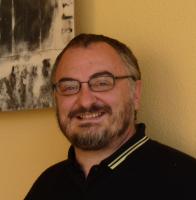
|
Andrea Moro
Institute for Advanced Study IUSS - Pavia
andr...@iusspavia.it
Andrea Moro (1962 - ) is full professor of General Linguistics at the Institute ofAdvanced Studies IUSS Pavia, head of the Undergraduate Degrees and former directorof the interfaculty program in cognitive neuroscience at the Vita-Salute San Raffaele University in Milan which he contributed to found in 1993. He has been Fulbright student and visiting scientist at MIT and at Harvard University several times and obtained a Diplôme d'études supérieures en théorie de la syntaxe et syntaxe comparative at the University of Geneva. His main fields of research are theoretical syntax (clause structure, expletives, unaccusativity, locality and syntactic movement), the relation between syntax and semantics (predication, existential sentences, definiteness effect, quasi-copular sentences) and neurolinguistics (focussing on the relation between syntax and the brain). As for the latter field of research, he explores the neural correlates of syntax by the use of neuroimaging techniques. His work has provided evidence that syntax correlates with a selective neural network and non-recursive syntaxes do not activate that syntactic network, thus showing that universal grammar cannot be a conventional artifact on neurobiological grounds. Another field of research is the exploration of the neural correlates of negation where he showed that negation is able to modulate motor-planning neural activities. He published three books: The Raising of Predicates (Cambridge University Press, 1997), Dynamic Antisymmetry (MIT Press, 2000) and The Boundaries of Babel (MIT Press, 2008) and papers on international journals including Linguistic Inquiry and Nature Neuroscience. |
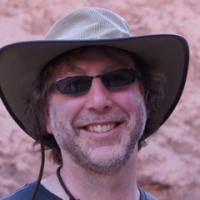
|
Mitchell J. Nathan
University of Wisconsin-Madison
mnat...@wisc.edu
Mitchell J. Nathan is Professor of Educational Psychology, Curriculum & Instruction, and Psychology at the University of Wisconsin-Madison. He holds degrees in engineering and mathematics (BS), and cognitive psychology (PhD). Dr. Nathan explores the nature of knowledge and meaning, especially as it arises during mathematical and scientific learning activities. Areas of study include the development of algebraic reasoning and the role of children's invented strategies and representations; expert blind spot among teachers (and researchers!); and the role that gesture and language serve in conjuring and grounding abstract representations. His research is largely rooted in cognitive, embodied and sociocultural perspectives. He has used computer animation to enhance mathematical performance by improving reading comprehension. He has been Principal Investigator or co-Principal Investigator for over $20M of funded research grants. Among his current research efforts, Dr. Nathan is investigating the the role of action and language in mathematical thinking, contributions of gesture production to mental model formation when learning from text, and how learners and instructors maintain coherence during project-based learning in science as concepts are presented in a variety of symbolic, verbal, visual and material forms. |
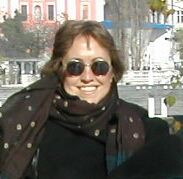
|
Marina Nespor
SISSA Trieste
mari...@unimib.it
Marina Nespor is Proffesor at the Università degli Studi di Milano - Bicocca, Italy. The research program of Marina Nespor concentrates on the sound system of language and how this conveys information about syntax, on the one hand, and segmentation of the speech flow, on the other hand. Within this general line of research, she has concentrated on rhythm and its relation to word order, and how rhythm may help acquire different aspects of language. She has recently also investigated the different cognitive mechanisms responsible for different orders of words in sentences. |

|
Nora S. Newcombe
Temple University
Newc...@temple.edu
Nora S. Newcombe is Professor of Psychology and James H. Glackin Distinguished Faculty Fellow at Temple University. Her Ph.D. is from Harvard University. Her research focuses on spatial cognition and development, including the nature of gender differences in spatial ability. She is also interested in the development of autobiographical and episodic memory. Dr. Newcombe is the author of numerous chapters, articles, and books, including Making Space with Janellen Huttenlocher (published by the MIT Press, 2000). Her work has been recognized by several awards, including the George A. Miller Award and the G. Stanley Hall Award. She is a member of the American Academy of Arts and Sciences and of the Society of Experimental Psychologists. She has served as Editor of the Journal of Experimental Psychology: General and Associate Editor of Psychological Bulletin, as well as on many grant panels and advisory boards. She is currently Principal Investigator of the NSF-funded Spatial Intelligence and Learning Center, whose mission is to understand human spatial cognition, with an emphasis on the idea that spatial knowledge and skills can be improved, and to apply the resulting knowledge to foster spatial learning, especially in STEM disciplines. |

|
Hal Pashler
Univ of California, San Diego
hpas...@gmail.com
Hal Pashler received his PhD from the University of Pennsylvania in 1985, and is currently a Professor of Psychology and Cognitive Science at the University of California, San Diego. His work has spanned the areas of human attention and human learning and memory. Pashler is the author of The Psychology of Attention (MIT Press, 1998) and Editor in Chief of the Stevens Handbook of Experimental Psychology, Third Edition (Wiley, 2002). In 1999, he received the Troland Prize from the National Academy of Sciences, which cited his "many experimental breakthroughs in the study of spatial attention and executive control, and his insightful analysis of human cognitive architecture". Since 2002, Pashler has been focusing most of his research effort on questions about learning and memory that have direct implications for instructional practices and potential new learning and training technologies. His research examines factors that can reduce the rate at which knowledge is forgotten, including temporal spacing of learning and different ways of using retrieval practice. Pashler was the chair of the panel commissioned by the Institute of Education Sciences (US Dept of Education) to write a practice guide called Organizing Instruction and Study to Improve Student Learning. His laboratory has been supported by the Institute of Education Sciences, the National Science Foundation, the John S. McDonnell Foundation, and the Office of Naval Research. |
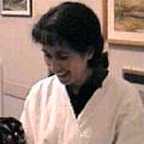
|
Marcela Peña
P. Universidad Catolica de Chile & Universidad de Chile
p...@sissa.it
Marcela Peña is Associated Professor at the Pontificia Universidad Catolica de Chile and at the Universidad de Chile. Originally she is an MD, Pediatrician and obtained her PhD in Cognitive Science and Psycholinguistic from the École des Hautes Études en Sciences Sociales, Paris, France. Her research interest is focused to explore early cognitive development and early learning. Integrating behavioral and neuroimage techniques and methods, she and her team study how the infants and young children learn their native language and develop their mathematical cognition and their symbolic mind. In her studies she includes healthy participants and patients. |
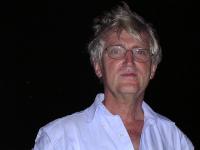
|
Pierre Pica
UMR 7023, Centre National de la Recherche Scientifique
p...@msh-paris.fr
Pierre Pica was born in Nice in 1951. |
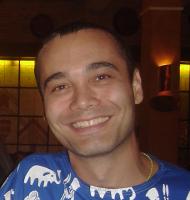
|
Sidarta Ribeiro
Brain Institute, Federal University of Rio Grande do Norte
sida...@neuro.ufrn.br
Sidarta Ribeiro was born and raised in Brasília, Brazil. He majored in biology at the University of Brasília and got a master degree in neurobiology at the Federal University of Rio de Janeiro. He got a Ph.D. at the Rockefeller University and performed post-doctoral work at Duke University. In 2005, he moved to Natal in Brazil to launch the Edmond and Lily Safra International Institute of Neuroscience of Natal (ELS-IINN). Sidarta was the scientific director of the Institute until 2008, when he became full professor of neuroscience at the Federal University of Rio Grande do Norte (UFRN). Currently he is the director of the Brain Institute at UFRN. His research deals with sleep & memory as well as animal communication, in models as diverse as mice, rats, lizards, marmosets and humans. |

|
Rebecca Saxe
Department of Brain and Cognitive Sciences - MIT
s...@mit.edu
Externally observable components of human actions carry only a tiny fraction of the information that matters. Human observers are vastly more interested in perceiving or inferring the mental states - the beliefs, desires and intentions - that lie behind the observable shell. If a person checks her watch, is she uncertain about the time, late for an appointment, or bored with the conversation? If a person shoots his friend on a hunting trip, did he intend revenge or just mistake his friend for a partridge? The mechanism people use to infer and reason about another person's states of mind is called a 'Theory of Mind' (ToM). One of the most striking discoveries of recent human cognitive neuroscience is that there is a group of brain regions in human cortex that selectively and specifically underlie this mechanism. My lab studies these brain regions for Theory of Mind, as a case study in the deeper and broader question: how does the brain - an electrical and biological machine - construct abstract thoughts?" Rebecca Saxe is an Associate Professor of Cognitive Neuroscience in the department of Brain and Cognitive Sciences (BCS) at MIT. Her research is on the neural basis of social cognition, and in particular she is known for proposing the role of the right temporoparietal junction in thinking about people's mental states. Saxe received her BA in psychology and philosophy from Oxford University in 2000, and her PhD in cognitive science from MIT in 2003. |
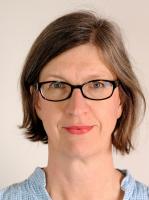
|
Constance Scharff
Freie Universität Berlin, Department of Animal Behavior, Germany
scha...@zedat.fu-berlin.de
Our group researches the celliular and molecular neurobiology of learned behaviors, with the following major areas: • Cellular and molecular mechanisms of vocal communication and its disorders |
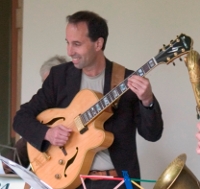
|
Michael Shadlen
Howard Hughes Medical Institute
University of Washington Medical School
shad...@u.washington.edu
Michael Shadlen MD, PhD is an Investigator of the Howard Hughes Medical Institute and Professor of Physiology & Biophysics at the University of Washington, where he is also an adjunct Professor of Neurology. He performed undergraduate and medical studies at Brown University and obtained a PhD from UC Berkeley in visual neuroscience under the guidance of Ralph D. Freeman. He received postgraduate clinical training in Neurology at Stanford Medical Center. He then returned to basic neuroscience as a fellow in the laboratory of William T. Newsome, where he began to work on the neurobiology of decision-making. Shadlen studies neurons in the association cortex that process information from the visual cortex to give rise to interpretations, decisions, and plans for behavior. His experiments combine electrophysiology, behavior and computational methods to advance our knowledge of higher brain function. For more information see this page |
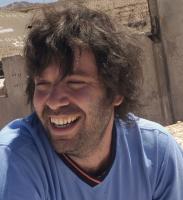
|
Mariano Sigman
Universidad de Buenos Aires
mari...@gmail.com
Mariano Sigman was born in Argentina and grew up in Barcelona, Spain. He came back to Argentina and got a master degree in physics at the University of Buenos Aires. He moved to New York to do a PhD in neuroscience at the Rockefeller University directed by Charles Gilbert and Marcelo Magnasco. His thesis investigations were focused on visual perception, on the physiology and psychophysics of perceptual learning. He then moved to Paris, to do a postdoc with Stanislas Dehaene on consciousness and cognitive architecture. In 2006 he came back (again) to Argentina, as a professor in the Physics Department, where he currently is the director of the Integrative Neuroscience Laboratory. |

|
Joshua Tenenbaum
MIT
j...@mit.edu
Josh Tenenbaum studies learning, reasoning and perception in humans Tenenbaum is Professor of Computational Cognitive Science in the |

|
Stella Vosniadou
University of Athens
svos...@phs.uoa.gr
Stella Vosniadou is professor of cognitive psychology and chair of the Cognitive Science Division in the Department of Philosophy and History of Science at the National and Kapodistrian University of Athens. She is the chair of the interdisciplinary graduate program in ‘Basic and Applied Cognitive Science’ and director of the Cognitive Science Laboratory at the same university. Her research interests are in the area of conceptual development and conceptual change. She studies the process of knowledge acquisition in the areas of physical science and mathematics and has explored the implications of her psychological studies for education and the design of learning environments. She has published more than 100 articles and book chapters in English and in Greek. She is the editor (amongst others) of the International Handbook of Research on Conceptual Change (Routledge, 2008). She has also edited, with Andrew Ortony, the book Similarity and Analogical Reasoning (Cambridge University Press), and with Daniel Kayser the book Modeling Changes in Understanding: Cases Studies in Physical Reasoning (Elsevier). She is the current editor of the Journal of the Greek Psychological Association (PSYCHOLOGIA) and of the Journal of the Hellenic Cognitive Science Society (NOHSIS). Professor Vosniadou is chair-elect of the Cognitive Science Society, and has been past president of the European Association for Research on Learning and Instruction (EARLI), past chair of the International Relations Committee of the American Educational Research Association (AERA), and a consultant to the Organization for Economic Cooperation and Development (OECD) for the Program of International Student Assessment (PISA). She organized the conference of EARLI in Athens in 1997 and the European Cognitive Science conference in Delphi, Greece in 2007. |

|
David Yaron
Carnegie Mellon University
yar...@cmu.edu
David Yaron is an Associate Professor in the Department of Chemistry at Carnegie Mellon University. He received his Ph. D. in chemical physics from Harvard University and was a postdoctoral researcher at MIT. His computational chemistry work focuses on the electronic structure of large systems such as organic semiconductors, and the use of machine learning to develop computationally tractable models of such systems. His educational research focuses on conceptual learning in introductory chemistry courses. He oversees the ChemCollective, which develops, assesses and disseminates online materials for high school and introductory college courses. ChemCollective materials include virtual labs, scenario based learning materials, and interactive tutorials. The virtual labs allow students to design and carry out their own experiments, with the goal of helping students connect the concepts of the course to authentic chemical activities. The scenario based learning materials allow students to practice chemical concepts in real-world contexts. The tutorials implement instruction based on extensive research on student problem solving, including a new approach to chemical equilibrium instruction that has been shown to nearly double student performance on difficult problems. The most recent additions are particulate-level visualizations to teach difficult concepts in molecular science across disciplines. |
